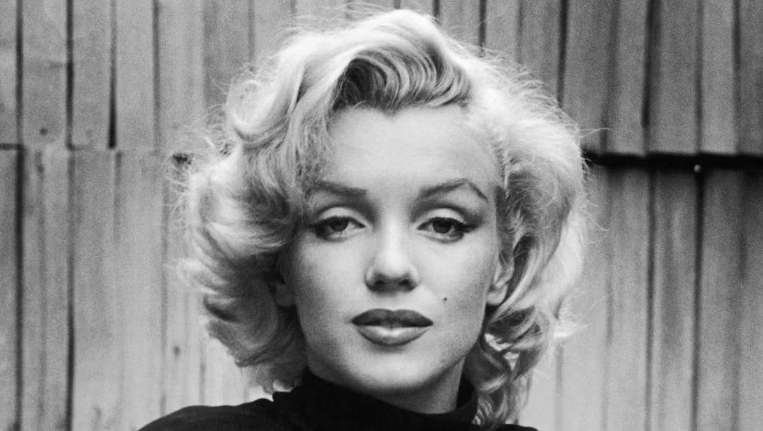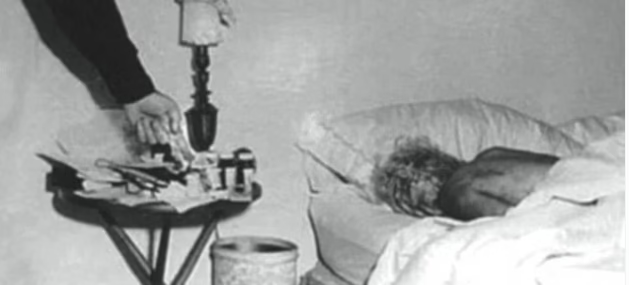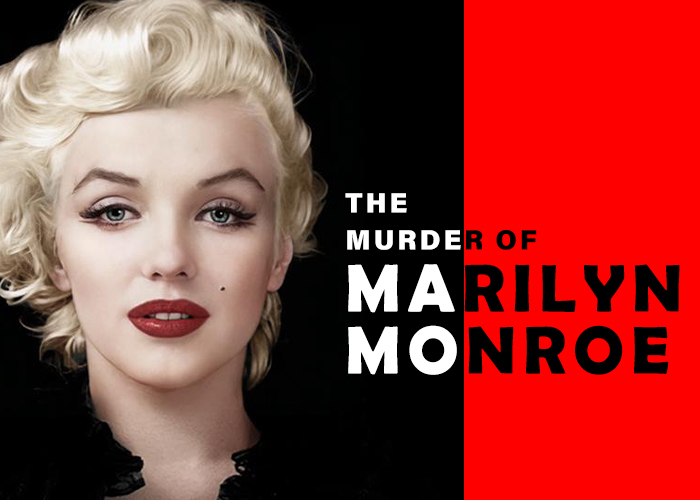Marilyn Monroe, the iconic Hollywood actress and s@x symbol, died on August 5, 1962, at the age of 36. Her death was officially ruled as a suicide by drug overdose, but over the years, numerous conspiracy theories have emerged, suggesting that she was murdered. Some theories implicate the U.S. government, while others point to the mafia or powerful individuals in Hollywood. These theories have persisted for decades, fueled by Monroe’s troubled life, her connections to influential figures, and the mysterious circumstances surrounding her death. In this article, we will explore the life and death of Marilyn Monroe, the official account of her passing, the most prominent conspiracy theories, and the evidence (or lack thereof) supporting them. We will also discuss why these theories continue to captivate the public imagination. To make it easy to understand, we will use simple language and include summaries, timelines, and questions and answers.
Who Was Marilyn Monroe?

Marilyn Monroe, born Norma Jeane Mortenson on June 1, 1926, in Los Angeles, California, was one of the most famous actresses of the 20th century. Known for her beauty, charisma, and talent, she became a cultural icon and a symbol of Hollywood glamour. However, behind the scenes, Monroe struggled with personal demons, including mental health issues, substance abuse, and a series of tumultuous relationships.
Monroe’s career included iconic roles in films like Gentlemen Prefer Blondes (1953), The Seven Year Itch (1955), and Some Like It Hot (1959). Despite her success, she faced challenges in her personal life, including three failed marriages and a constant battle with depression and anxiety.
The Official Account of Marilyn Monroe’s Death
On August 5, 1962, Marilyn Monroe was found dead in her Brentwood, Los Angeles, home. She was lying nude in her bed,

with an empty bottle of sleeping pills (Nembutal) nearby. The Los Angeles County Coroner’s Office ruled her death as a “probable suicide” caused by an overdose of barbiturates.
Key points from the official investigation include:
- Monroe had a history of prescription drug abuse and had overdosed on multiple occasions in the past.
- She had been struggling with depression and anxiety, exacerbated by her failed marriages and career pressures.
- Her psychiatrist, Dr. Ralph Greenson, and housekeeper, Eunice Murray, were present at her home on the night of her death.
- The autopsy found high levels of barbiturates in her system, consistent with an overdose.
Conspiracy Theories Surrounding Marilyn Monroe’s Death
Despite the official ruling, many people believe that Marilyn Monroe was murdered. These theories often point to her connections with powerful figures, including President John F. Kennedy and his brother, Attorney General Robert F. Kennedy, as well as organized crime. Below are the most prominent conspiracy theories:
1. The Kennedy Connection
One of the most popular theories suggests that Monroe was murdered to cover up her alleged affairs with President John F. Kennedy and his brother, Robert F. Kennedy. According to this theory, Monroe knew too much about the Kennedys’ personal and political secrets, and her death was orchestrated to silence her.
- Evidence: Monroe reportedly had close relationships with both Kennedy brothers. Some claim she kept a “diary of secrets” that contained damaging information about them.
- Counterarguments: There is no concrete evidence to prove that Monroe was murdered or that the Kennedys were involved. Many historians and biographers consider the affair claims to be exaggerated or unsubstantiated.
2. The Mafia Connection
Another theory implicates the mafia, suggesting that organized crime figures killed Monroe to protect their interests or to send a message to the Kennedys, who were cracking down on organized crime at the time.
- Evidence: Monroe had connections to individuals linked to the mafia, including her second husband, Joe DiMaggio, and her alleged lover, Sam Giancana, a Chicago mob boss.
- Counterarguments: Like the Kennedy theory, there is no solid evidence to support the claim that the mafia was involved in Monroe’s death.
3. The Government Cover-Up
Some theorists believe that Monroe was killed by government agents to prevent her from revealing classified information or to protect national security.
- Evidence: Monroe reportedly had access to sensitive information through her relationships with powerful figures.
- Counterarguments: There is no credible evidence to suggest that Monroe possessed classified information or that the government had a motive to kill her.
4. The Hollywood Conspiracy
Another theory suggests that Monroe was murdered by powerful figures in Hollywood who wanted to protect the industry’s reputation or eliminate a troublesome star.
- Evidence: Monroe had conflicts with studio executives and struggled with her mental health, which some believe made her a target.
- Counterarguments: There is no evidence to support the idea that Hollywood figures conspired to kill Monroe.
Why Do These Theories Persist?
The conspiracy theories surrounding Marilyn Monroe’s death persist for several reasons:
- Her Iconic Status: Monroe was a larger-than-life figure, and her untimely death has become a part of her legend.
- Mystery and Intrigue: The circumstances of her death, including the presence of powerful figures and unanswered questions, fuel speculation.
- Distrust of Authority: Many people are skeptical of official accounts, especially when they involve influential individuals or institutions.
- Cultural Fascination: Monroe’s life and death continue to captivate the public, inspiring books, documentaries, and films that explore the conspiracy theories.
The Impact of Conspiracy Theories
Conspiracy theories about Marilyn Monroe’s death have had a lasting impact on her legacy. They have:
- Shaped Public Perception: Many people remember Monroe more for the mysteries surrounding her death than for her contributions to film and culture.
- Inspired Media: The theories have inspired countless books, documentaries, and movies, keeping Monroe’s story alive in popular culture.
- Overshadowed Her Achievements: The focus on her death often overshadows her talent, intelligence, and advocacy for women’s rights.
Timeline of Key Events
- June 1, 1926: Marilyn Monroe is born as Norma Jeane Mortenson in Los Angeles, California.
- 1946: Monroe begins her acting career.
- 1953-1959: Monroe stars in iconic films like Gentlemen Prefer Blondes, The Seven Year Itch, and Some Like It Hot.
- August 5, 1962: Monroe is found dead in her Brentwood home.
- 1962: The official ruling declares her death a “probable suicide.”
- 1980s-Present: Conspiracy theories about Monroe’s death gain traction in books, documentaries, and media.
Summaries
Summary of the Official Account
- Marilyn Monroe died on August 5, 1962, from a drug overdose.
- Her death was ruled a “probable suicide” by the Los Angeles County Coroner’s Office.
Summary of Conspiracy Theories
- Theories suggest Monroe was murdered by the Kennedys, the mafia, the government, or Hollywood figures.
- These theories are based on her connections to powerful individuals and the mysterious circumstances of her death.
Summary of Why Theories Persist
- Monroe’s iconic status, the intrigue surrounding her death, and distrust of authority contribute to the persistence of conspiracy theories.
Questions and Answers
Q: Was Marilyn Monroe murdered?
A: The official ruling is that she died by suicide, but conspiracy theories suggest she was murdered. There is no concrete evidence to support the murder claims.
Q: What is the Kennedy connection theory?
A: This theory suggests Monroe was killed to cover up her alleged affairs with John F. Kennedy and Robert F. Kennedy. There is no solid evidence to prove this.
Q: Why do people believe conspiracy theories about Monroe’s death?
A: Her iconic status, the mystery surrounding her death, and distrust of authority contribute to the belief in conspiracy theories.
Q: How have conspiracy theories impacted Monroe’s legacy?
A: They have shaped public perception, inspired media, and sometimes overshadowed her achievements as an actress and cultural icon.
Conclusion
The death of Marilyn Monroe remains one of the most enduring mysteries in Hollywood history. While the official account attributes her death to a drug overdose, conspiracy theories continue to captivate the public imagination. These theories reflect broader themes of distrust, fascination with power, and the allure of mystery. Ultimately, Monroe’s legacy is not just about her death but also about her talent, resilience, and the indelible mark she left on the world. By separating fact from fiction, we can honor her contributions and remember her as the iconic figure she truly was.





